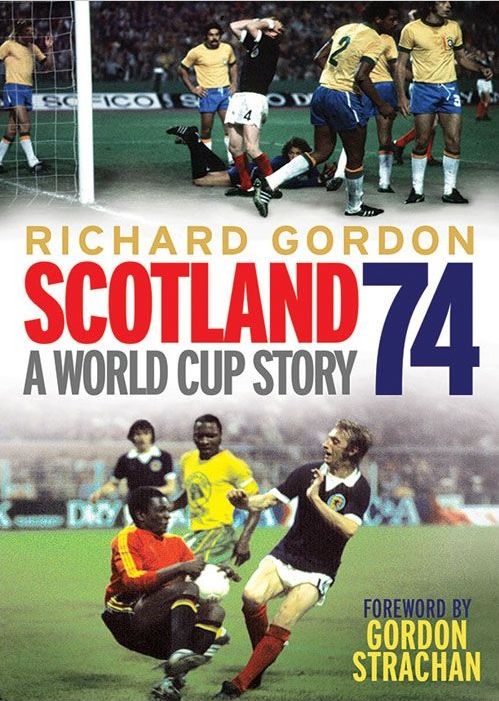Voice’s Old Susannah takes a look over the past week’s events in the ‘Deen and beyond. By Suzanne Kelly.
 It may seem like a lovely summer here in Aberdeen, but depending on who you believe, we need to be on the lookout for dangerous foreign invaders of all kinds. Our lives, jobs and even our gardens are not safe from alien interlopers of one sort or another. More on that later.
It may seem like a lovely summer here in Aberdeen, but depending on who you believe, we need to be on the lookout for dangerous foreign invaders of all kinds. Our lives, jobs and even our gardens are not safe from alien interlopers of one sort or another. More on that later.
However, along with locals and even some foreigners, I’ll brave the ever-present dangers to go to both the Gray’s School of Arts Degree show (Friday) and BrewDog’s Annual General Meeting (Saturday).
Apparently something is taking place in Brazil; it involves a bunch of foreigners getting together to play football.
This kind of foreign invasion is a good thing; it brings lots of investment apparently, unless you’ve the misfortune to be one of Brazil’s poor who are being turfed out of the makeshift homes that stand in the way of the beautiful game.
Still, FIFA knows what’s best. That nice Mr Blatter does seem to have one or two critics of late; I can’t imagine why.
Let’s look at these foreign threats by way of a definition or two.
Foreign intervention: (Mod English Phrase) – An involvement in a sovereign state’s affairs by another state, body or army.
Back in the day, you may remember how the US and the UK kindly went to help make things better in Iraq. Tony Blair said our little intervention was the right thing to do; he should have known – he wrote most of the dossier supporting the case for us getting in there.
I can’t imagine why, but things don’t seem to have worked out quite like Tony said they would. He wants us to go back in, or rather to bomb a few people. We’ve never gone wrong listening to him in the past perhaps we should do as he says now.
There was a tiny parade of a million or so people in London back in the day, asking him not to go to war, but he bravely stood his ground, and took us to where we are today. Remember, it’s only a foreign invasion if it’s happening in the UK, not if it’s the UK going somewhere else and lending a friendly helping hand.
It’s important to remember there are good foreigners and bad ones.
The good ones want to come over and buy up our land, utilities, newspapers and other media, and of course businesses. The bad ones want to come over and work for us, live in decent rooms without getting ripped off, be treated fairly and other unreasonable demands. It’s very important to remember too that all of the rich ones are not involved in crime, and all of the non-wealthy immigrants are criminals.
We’re open for business – if you’ve got the right connections. Thankfully, we have all sorts of level-headed politicians looking out for our interests.
And UK residents who live abroad? Well, we’re not invading foreigners – we’re expats. That’s different.
But possibly the worst kinds of foreigners are the ones that are set to take over.
Romanians: (Proper noun) People born in, living in, or descended from citizens of Romania.
Nigel Farage, UKIP leader, has seized on yet another group of foreigners that we must be wary of, the wily, dangerous Romanians. Here’s a little clip of Nigel explaining all to Jeremy Paxman https://www.youtube.com/watch?v=ynq_KqlmHIY .
Nigel explains that Romanian organised criminals are the most prolific and dangerous in Europe. Paxman then quotes some statistics saying they’re no such thing. Paxman asks more questions; Farage gives brilliant answers that are not at all xenophobic, reactionary or racist. Farage worries that Romanian hordes will come to the UK and we’ll be inundated with their organised crime gangs.
It hasn’t happened yet, but I’m sure it will any day.
Paxman also asks some questions about UKIP members’ homophobic statements; Farage explains this is all down to the fact the members in question are old, and from a time when homosexuality was illegal – so it’s fair enough if they’re anti-gay. I’m sure you’re as happy as I am with UKIP’s recent political gains. I wonder what’s next for this forward-looking, inclusive, tolerant party? In the meantime forget about the politicians taking more than their share of expenses, billionaires avoiding taxes that should support our infrastructure – it’s Romanians we should be thinking about.
Invasive species: (Modern English compound noun) Flora and Fauna not native to the UK but which can be found here.
They’re over here, and they will soon outnumber their British counterparts. We’ve heard about the muntjack deer – dubbed the ‘Asbo’ deer by one of our SNH experts, publicity-shy Jamie.
But now an imminent scientist – who isn’t at all a headline-grabbing empire builder – has identified ‘the biggest threat to our ecology’.
Is it urban sprawl and the loss of green space in favour of tarmac? Is it that Scotland’s roads exceed acceptable levels of pollution for many years? Is it climate change? The decline of bee populations which may hurt pollination and crops? Rising sea levels? Godzilla? Mothra? Obviously not – our biggest threat is the Rhododendron.
‘Destroy All Rhododendrons in Scotland’ is the battle-cry of scientist (so he must be taken seriously and will have no ulterior motives and won’t let any personal feelings interfere with his objective, rational position) James Fenton. What are Rhododendrons to him?
“It is probably the biggest ecological issue for Scotland. If we did nothing and came back in a thousand years, the landscape would be just one dark rhododendron forest.”
Well, he’s a scientist and he says so, so that’s that. He also says this invading foreign threat creates so many seeds that its spread is exponential. Old Susannah might then wonder why we’re not already in his supposed Rhododendron forest.
I guess we’re meant to think that there have never been any plants that naturalised in the UK and that were beneficial. I guess we’re supposed to forget about all the foreign confiers planted up and down the countryside (taking away many meadowlands in the process).
I guess the fact that many of the rhododendrons that are supposed to be destroyed support wildlife that has otherwise been displaced; bees seem rather partial to the flowers for one thing. I’m sure the bee population won’t mind if we take out this source of food immediately. No, Mr Fenton sounds completely calm, rational and logical to me.
Thankfully, he also seems to be something of an economics expert. For funnily enough, there’s money to be had by eradicating the Rhododendron Menace. According to the Herald article:
“The plant has been eradicated from some areas, including Knoydart in the West Highlands, where £250,000 in grants paid for a ten-year programme using local workers. Fenton said an eradication programme would boost the economy of rural areas.”
Funnily enough, the SNH will soon release its Rhododendron strategy.
Funnily enough, every time the SNH comes up with a new animal or plant to demonise, they also want to demand the right to tell private landowners what to do, and there is coincidentally a wee bit of money involved. Their guidelines on the deer population, including the invading threat that is the muntjack deer included a policy of ‘advising’ landowners how many deer should be slaughtered.
The landowners recently have disagreed with the SNH deer population figures, and don’t want to shoot as many deer as the SNH would like. Well, who are you going to believe – the people who are on the land and see the deer, or the guys with science degrees sitting in their offices writing papers, and getting their names into the papers who propose increasing the SNH’s powers?
These same scientists came up with the earth-shattering guideline that if a doe is shot, any fawns should be shot as well or they may starve. This came as a huge revelation to the people on the front lines of deer management; they’d never have guessed it.
Perhaps I’m wrong to see a pattern here, but it seems
1. boffins get together and write a policy.
2. the policy identifies a species of plant or animal that the SNH wants to get rid of or greatly curtail.
3. articles appear in the media, happily going along with what the SNH wants.
4. guidelines tell public and private sectors that they ‘should’ manage the plant/animal in question.
5. grants spring up like mushrooms to help destroy the offending natural life form.
6. guidelines turn into laws wit the SNH demanding control over private lands irrespective of the landowner’s own observations and wishes.
As the asthma and respiratory disease rates increase (and a link between dementia and particulate pollution has just been made), as green spaces disappear (or become nothing more than petri dishes for whatever style of land management is in vogue at the time), as the seas are increasingly polluted, as the bird, fish and bee populations diminish, it’s good to know that the real culprit in our environment’s destruction has been identified: death to all Rhododendrons.
Of course Fenton’s offered no explanation of what will become of the species now depending on the plant, or what will go in place of the destroyed invaders (perhaps we’ll just have holes in the ground). But he can’t be expected to think of everything, can he.
Old Susannah’s out now to look for Romanian crime gangs, Rhododendrons and other invading species. By the time I make it to my front door, I half expect that the ‘exponentially increasing’ Rhododendrons will have covered my street, but I’ll try and hack my way through the foliage, mindful that Romanian thieves may well be hiding in the boughs.
Thank goodness we have Fenton and Farage to look out for our welfare and propose sensible reforms.
Next week: a report on the Rhododendron crisis, and an analysis on how many new plants have sprung up.
- Comments enabled – see comments box below. Note, all comments will be moderated.
